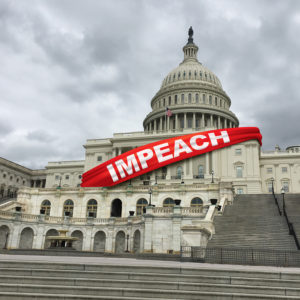As the congressional impeachment managers pointed out a few days ago, the American Founders drafted the U.S. Constitution in the summer of 1787 in the wake of a British impeachment trial against the former governor of India. That trial, against Warren Hastings, taught the British that it was appropriate to impeach former officials, not just current officeholders. What it did not teach them was the danger of mixing an impeachment trial with political concerns about future elections—the very concerns that are front and center for Republican senators today.
Had the Founders been thinking of a different high-profile British impeachment trial—taken against a Tory clergyman in 1710—they might have been alert to the ominous mix of impeachment votes and electoral politics.
As I explain in my recent book, Backlash: Libel, Impeachment, and Populism in the Reign of Queen Anne, the British Parliament’s impeachment of Dr. Henry Sacheverell in the spring of 1710—for a sermon preached against the fundamental principles of parliamentary monarchy and religious toleration—produced a violent populist backlash against the Whig impeachment managers in the House of Commons who presented the case in the House of Lords. During the weeks of the trial itself, mobs protested in the streets against religious minorities, violently destroying their houses of worship. They also sought revenge against the Whigs responsible for the impeachment.
Although the House of Lords voted to convict Dr. Sacheverell, it pronounced only a light sentence (merely forbidding him from preaching for three years, but not fining him or removing him from his position in the Church of England). The Tories saw this as a victory and fêted him in celebrations across the country. Although the House of Lords members who voted for a lenient sentence did not face re-election themselves (holding their positions through their aristocratic titles, rather than the ballot box), Whig members of the House of Commons were at risk in the upcoming election—and printed lists of how each MP had voted in Sacheverell’s trial were circulated around the country.
When parliamentary elections were held in November 1710, many Tories marched to the ballot box carrying printed mezzotint copies of Sacheverell’s portrait. Moreover, supporters of the preacher often violently attempted to stop Whigs from casting their ballots—this at a time when only three percent of the population even had the right to vote. Ultimately, the Whigs in the House of Commons suffered a massive defeat at the polls, with the Tories garnering 332 seats to the Whigs’ 181. The political fallout kept the Whigs in the minority in Parliament for the rest of Queen Anne’s reign.
When the American Founders met to write the Constitution in 1787, several of them were aware of Sacheverell’s 1710 impeachment, but they saw it only as a relatively obscure footnote to history. (After all, impeachment in the U.S. would not apply to clergymen, only to high officials). They did not heed the lesson of impeachment’s effect on elections. The American Founders assumed “public-spiritedness” would outweigh “factional loyalty,” according to Frank O. Bowman, author of High Crimes and Misdemeanors. This assumption was a significant miscalculation, as we can see today in so many Republican senators refusing even to recognize the constitutionality of the trial against former president Donald Trump.
The British had begun to learn a lesson about impeachment and party politics—and there would only be another handful of impeachments over the rest of the 18th century. Finally, in the mid-19th century, the procedure would be abandoned and replaced by other parliamentary and judicial proceedings to prosecute corrupt or seditious officials.
The British discarded the practice of impeachment (which had only been used about 70 times in 500 years), but it had never been central to the foundation of their government. They had never relied on impeachment to rein in the highest-ranking officeholder in the land.
It was only the American Founders who thought the procedure might allow the legislative branch to keep a proper check on the executive. But if certain senators today are so paralyzed by the fear of losing in the next election that they will not consider impeaching a president charged with abetting an insurrection against the very Congress in which they serve, then this ancient procedure may no longer be capable of serving the purpose for which our Founders intended it. If not, we may need to seek alternative means to hold the executive branch accountable to the American people.

